| | Trump reportedly signs off on a US plan of attack on Iran’s nuclear facilities, the FDA approves a ‘͏ ͏ ͏ ͏ ͏ ͏ |
| |  | Flagship |  |
| |
|
The World Today | 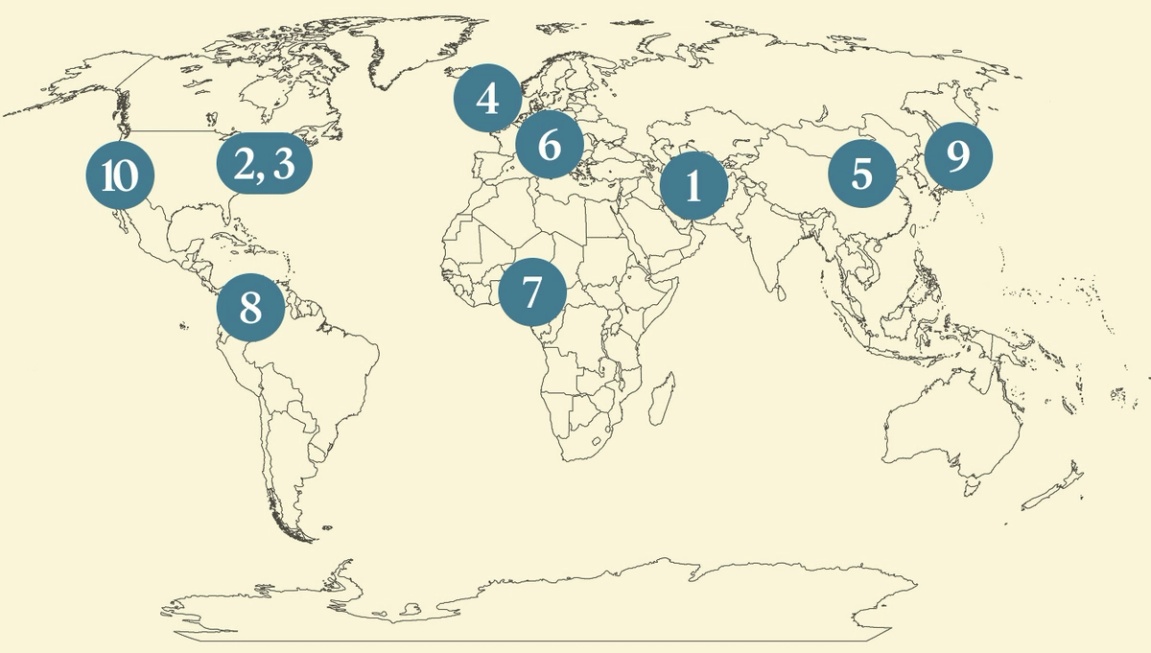 - Trump said to back strikes
- GOP split over Iran
- ‘Miracle’ HIV drug
- Time short for 1.5°C target
- China’s currency ambitions
- Europe disinflation risks
- US eyes new travel bans
- New Colombia labor law
- Honda enters space race
- LA Lakers sell for $10B
 The box-office draw of the PG movie, and a Haydn piano concerto performed by the late, great Alfred Brendel. |
|
Trump said to approve strikes |
|
Trump base divided over threats |
 US Senator Ted Cruz (R-TX) and Tucker Carlson. Tucker Carlson Network/Handout via/Reuters US Senator Ted Cruz (R-TX) and Tucker Carlson. Tucker Carlson Network/Handout via/ReutersUS President Donald Trump’s threats to attack Iran are splitting his political base as he backs away from a long-held pledge to avoid foreign conflicts. Republicans are divided between those who support strikes aimed at ensuring Iran does not obtain a nuclear weapon, and the party’s nationalist MAGA wing, much of which opposes intervention: A Washington Post poll found only 47% of GOP voters back taking action. Trump has spent the early months of his term negotiating with Iran over its nuclear program and seeking to restrain Israel — unsuccessfully — from attacking Iran. His apparent reversal has fueled supporters’ concerns about a “massive schism in MAGA.” |
|
 US regulators approved an HIV drug described as a “miracle” by the UN for its ability to prevent infections with two doses a year. When given to people at risk of HIV in the US and Africa, Gilead’s lenacapavir vastly outperformed the standard pre-exposure prophylaxis drug, which requires taking several pills daily. The drug works by stopping the virus infecting cells and replicating within them, and has previously been approved for use as a post-infection treatment, but is so long-acting that it can work preventatively even if only injected every six months. Gilead’s CEO said it could “end the HIV epidemic once and for all.” Almost 40 million people are living with HIV worldwide, with two-thirds of cases in Africa. |
|
Global carbon budget running out |
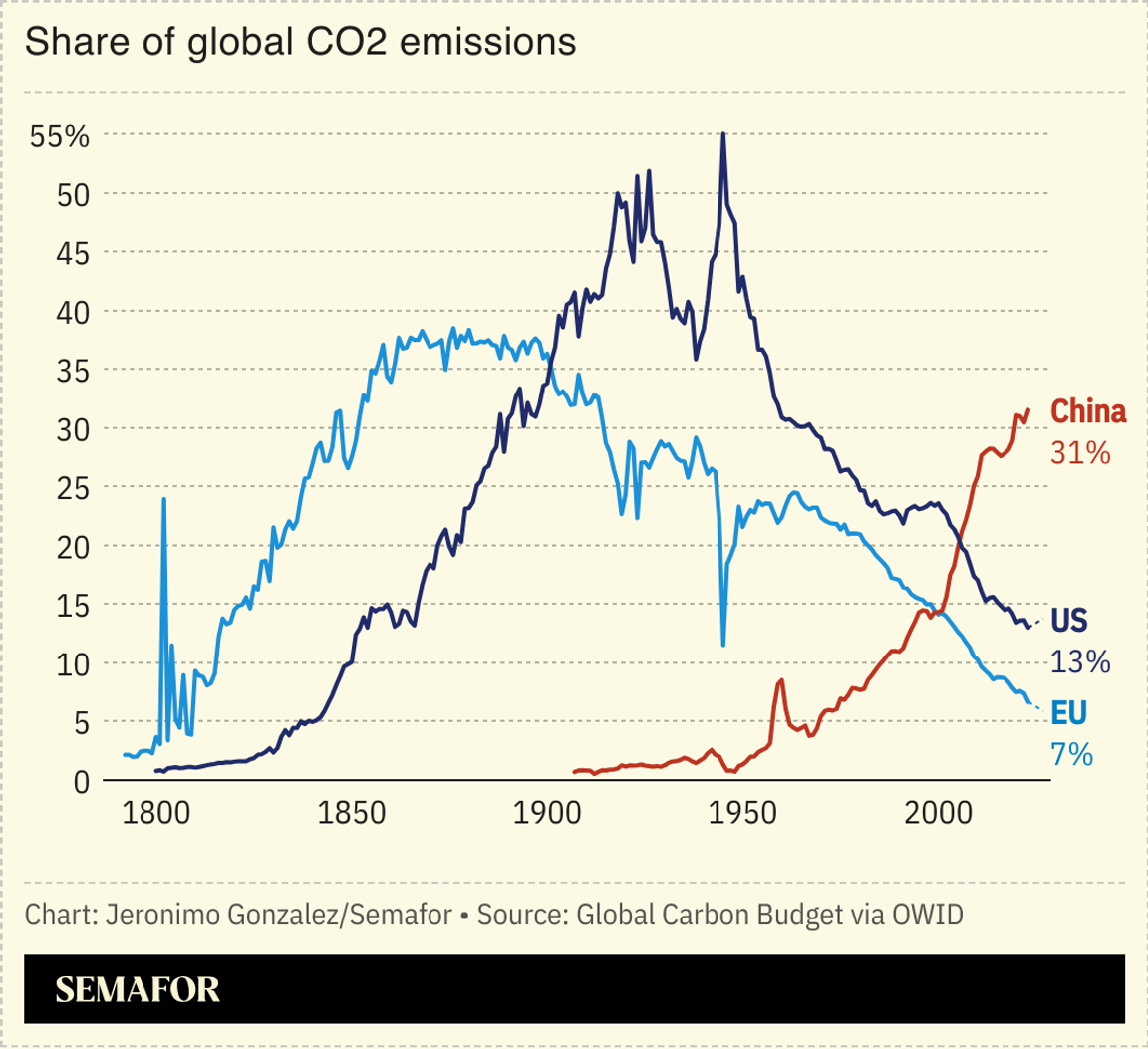 The world will have emitted too much carbon dioxide within the next three years to keep below the 1.5°C warming target, a new study suggested. The 2015 Paris Agreement saw governments pledge to limit warming to 1.5°C, which scientists regard as a critical turning point. But with temperature increases accelerating, new research estimates that the remaining carbon “budget” to avoid passing the threshold dropped from 500 billion tons in 2021 to 130 billion now, less than three years’ worth at current rates. The International Energy Agency predicts that oil use will peak before 2030, but that forecast is contested: OilPrice.com noted that global uptake of green technologies may be slowing. |
|
China pushes ‘multi-polar’ currency world |
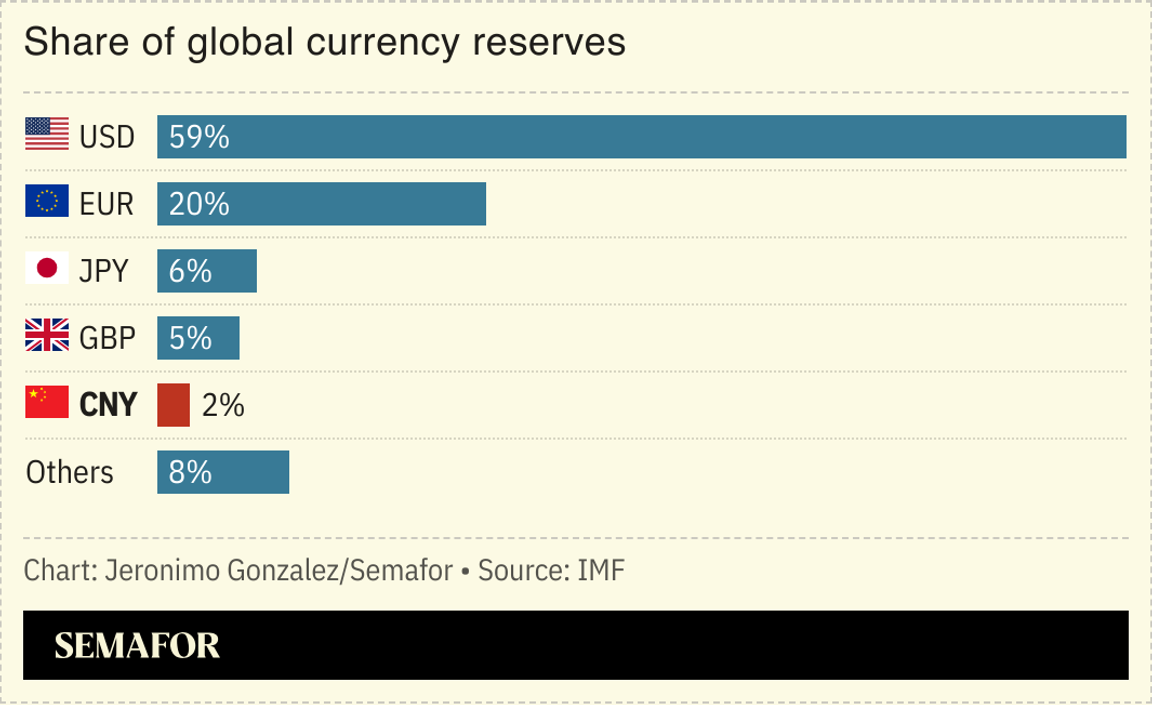 China’s central bank governor set out his vision for a “multi-polar” currency order, part of Beijing’s long-running efforts to dethrone the dollar. Washington derives huge benefit from the dollar’s role as the world’s reserve currency, allowing it to borrow more cheaply and impose economic sanctions on countries it wants to punish. Yet with mounting threats to the dollar’s dominance, others see opportunity, from Beijing, which wants to increase global use of its yuan, to Brussels, which has touted a “global euro.” The US Treasury secretary is hopeful, however, that Washington’s embrace of crypto and stablecoins — it passed new legislation this week — could “reinforce dollar supremacy” by making the US a hub for digital assets and its currency a reference point. |
|
Swiss cut spotlights Europe disinflation |
 Denis Balibouse/File Photo/Reuters Denis Balibouse/File Photo/ReutersThe Swiss National Bank lowered interest rates to zero, spotlighting worries of falling inflation in Europe. The central bank’s decision — along with a similar move by Norway — marks a contrast to peers across the rich world, most of whom are holding fire as they await more information on the economic impact of Washington’s tariffs and the Israel-Iran conflict. The continent largely expects both inflation and growth to slow, however, and the Swiss decision serves as “a reminder of the disinflation risks in core Europe,” Commerzbank economists wrote in a note to clients, while European economic growth has “never really recovered from the 2008 financial crisis,” a Center for European Reform paper warned. |
|
US eyes new travel restrictions |
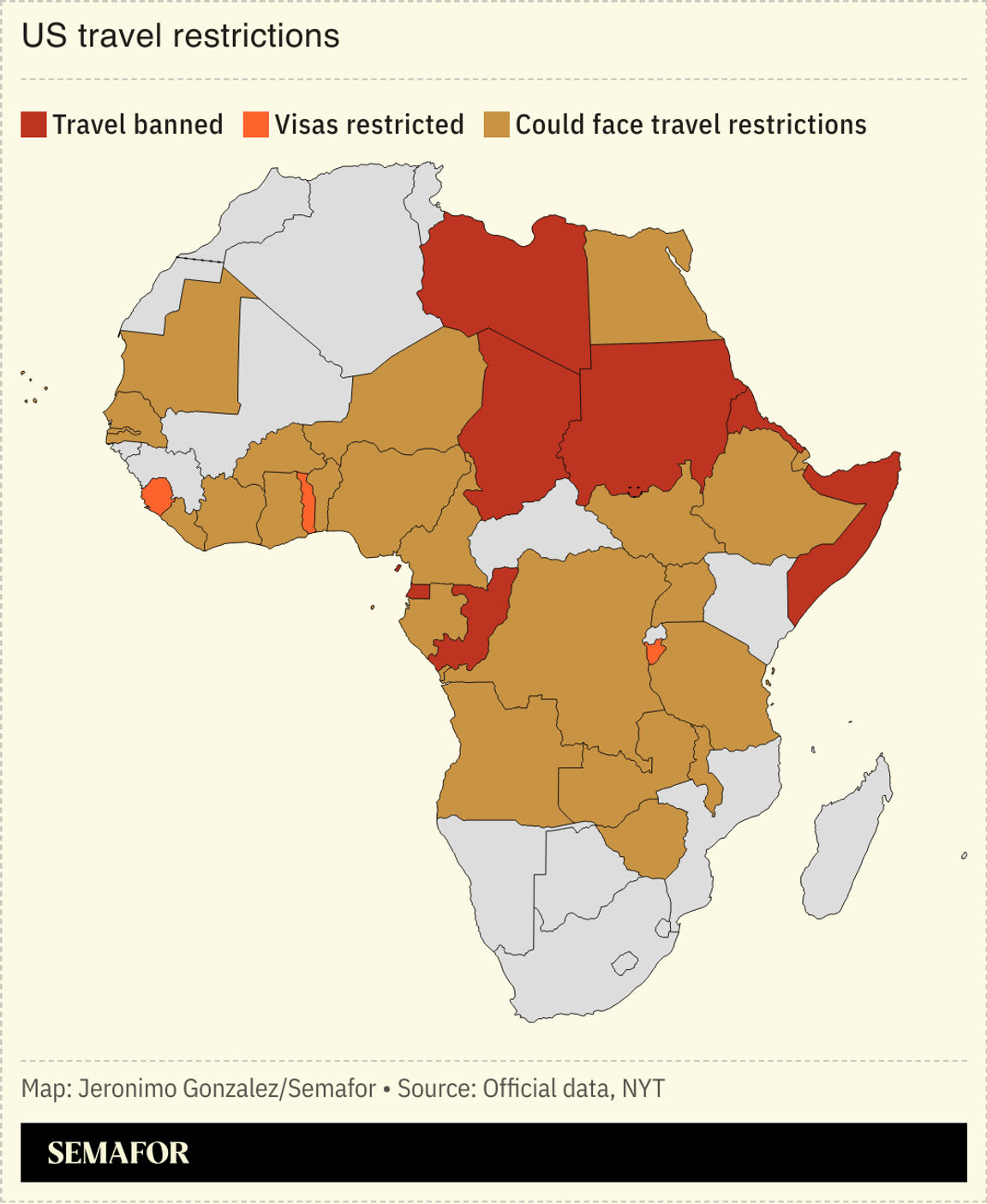 The US is considering extending travel restrictions to dozens of nations, including around 25 in Africa. The restrictions — which would follow those already imposed on 10 African countries this year — would include Nigeria, the continent’s most populous nation, The Washington Post reported. Washington is believed to be targeting those countries for their high share of visa overstays, among other reasons. Meanwhile the State Department will restart student visa applications, but said it would require applicants to have their social media profiles open for the government to review. The moves could further alienate foreign students, including from Africa: “China is the future,” a Ghanaian student in Nanjing told The New York Times. |
|
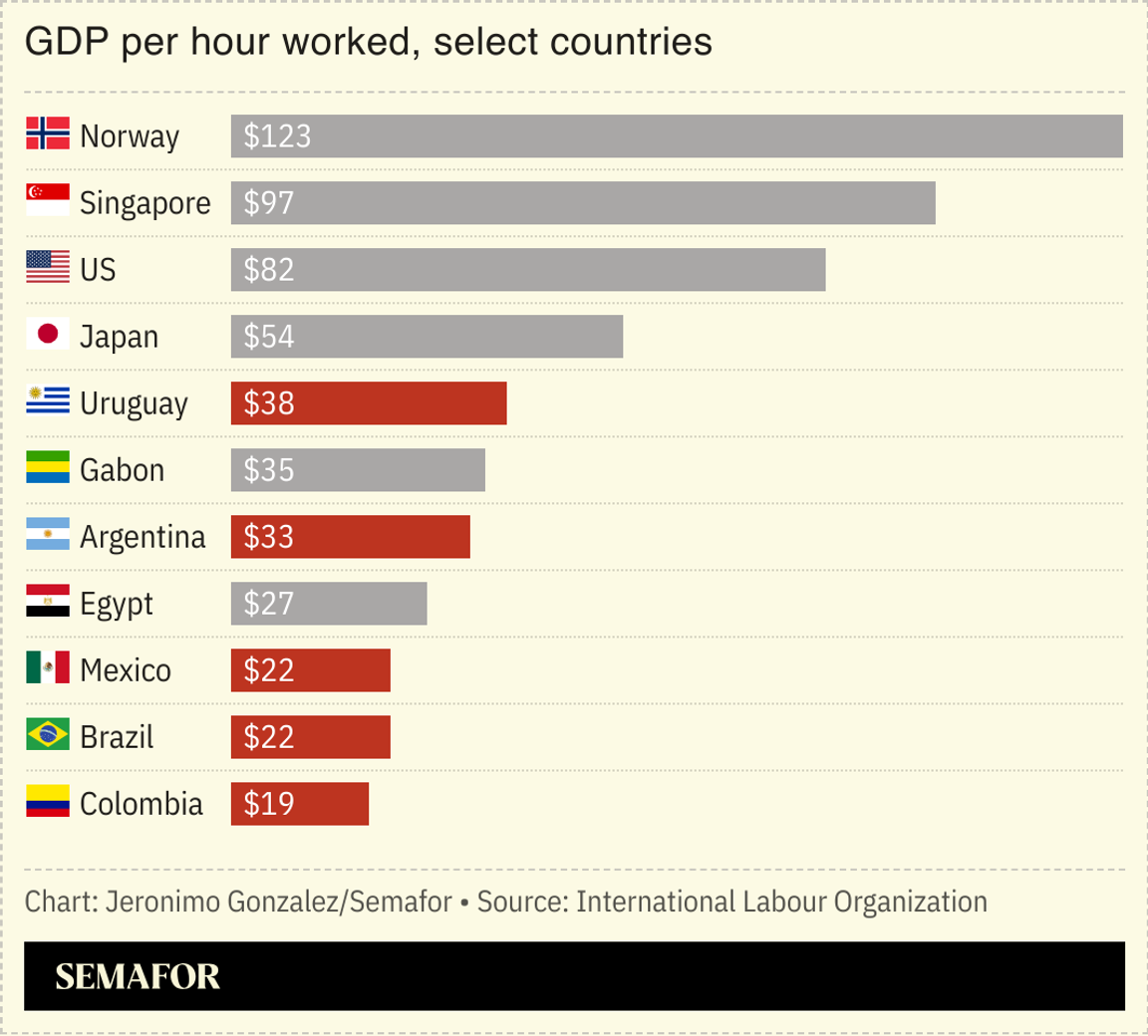 Colombia approved a labor law that limits the working day to eight hours and boosts overtime pay, moves the country’s president said were long overdue. While laborers across Latin America work some of the world’s longest hours, the region’s productivity is a fraction of that of wealthy nations. Meanwhile a huge share of workers are in the informal sector, meaning labor laws such as Colombia’s fail to reach them; some economists even forecast that a greater regulatory burden could dampen hiring and could push more people into the informal sector. Unless such issues are addressed, “the productivity of Latin American workers will remain low,” the World Bank said last year. |
|
 The explosion of the SpaceX rocket. TheRocketFuture via X/via Reuters The explosion of the SpaceX rocket. TheRocketFuture via X/via ReutersHonda unexpectedly entered the commercial space race, launching and landing its first reusable rocket. The 20-foot craft reached 900 feet in the air before landing precisely on its touchdown point in northern Japan. The Japanese car manufacturer has been involved in spaceflight-related equipment since 2021, including fuel cells and electrolysis systems for use in space, but kept its rocket plans “relatively quiet,” Gizmodo reported, making the launch a surprise. Japan wants to double the size of its space industry by the early 2030s. Honda is some way from challenging SpaceX’s dominance of the sector, although it may be heartened by the fact that the US company’s latest test of its giant Starship rocket ended in an explosion on the launchpad. |
|
Lakers sell for $10 billion |
|
|